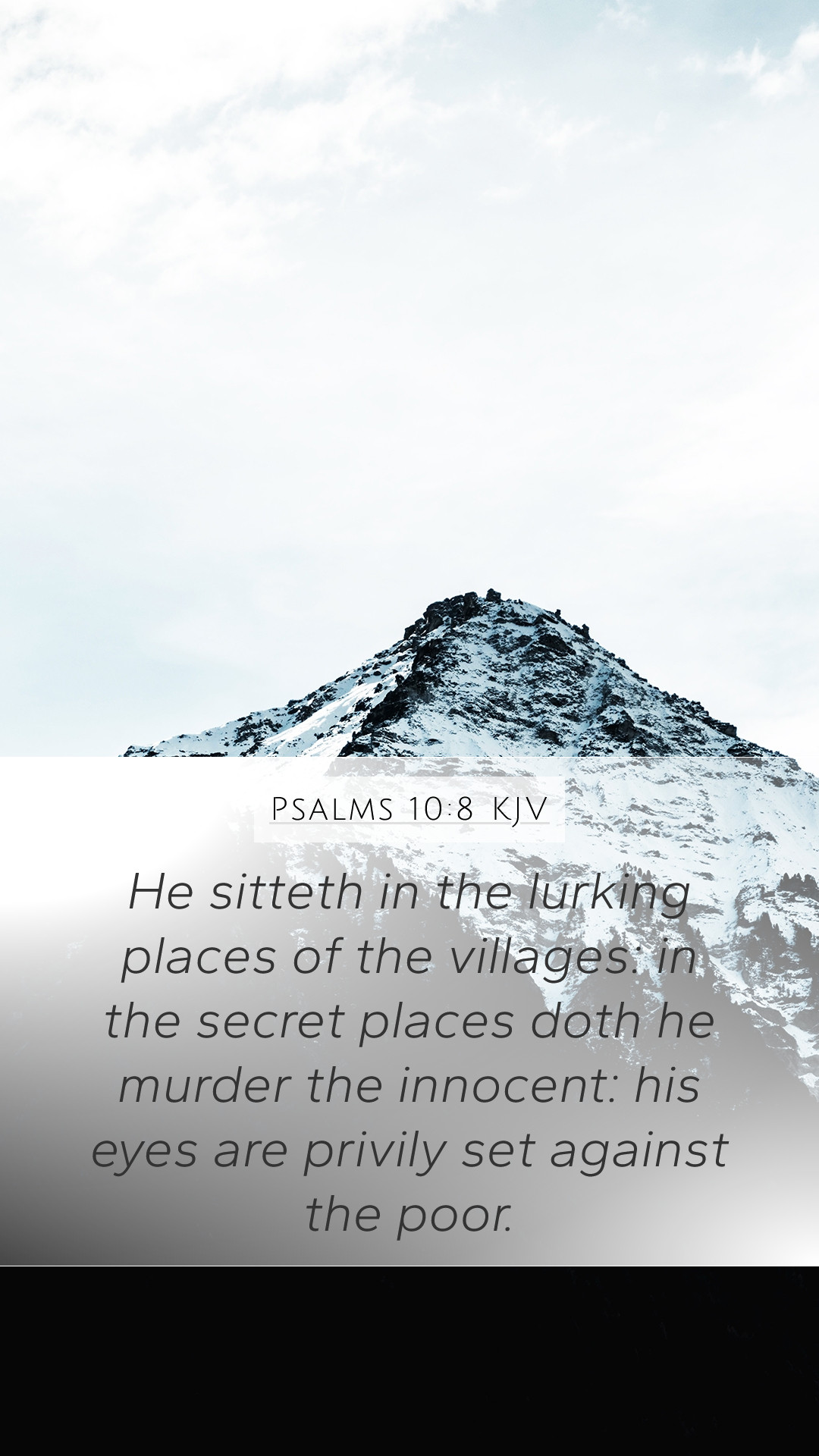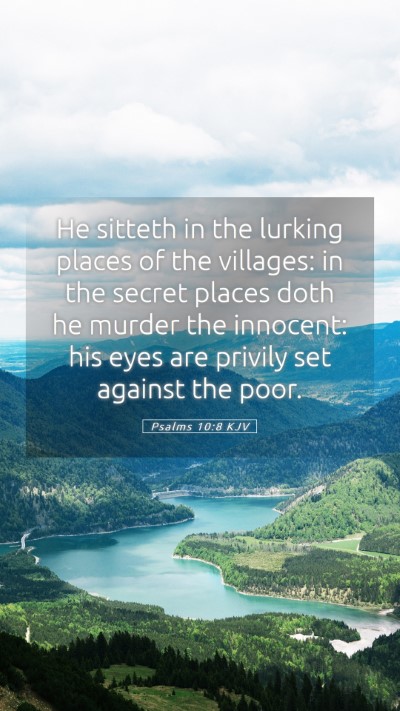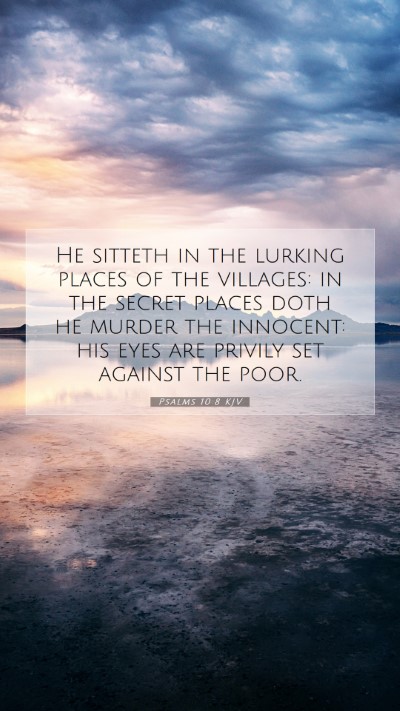Psalms 10:8 - Bible Verse Meaning and Commentary
Verse Text: "He sits in the hiding places of the villages; in the secret places he murders the innocent; his eyes are secretly fixed on the helpless."
Overview
Psalms 10:8 captures the portrayal of wickedness and the schemes of the evil-hearted who take refuge in secrecy to commit injustices against the innocent. This verse serves as a powerful commentary on how the wicked often operate under the veil of obscurity, engaging in malicious acts without fear of detection.
Bible Verse Interpretations
Understanding this verse requires us to delve into the metaphorical language used in the Psalms. The hiding places symbolize the deceptive nature of the wicked's activities, while the innocent signifies those who are vulnerable and unsuspecting of the threat posed by the evildoers. Notable insights garnered from public domain commentaries reveal the profound danger that lurks in complacency when the righteous fail to stand against such darkness.
Matthew Henry's Commentary
Matthew Henry emphasizes the craftiness of the wicked, who strive quietly in the shadows to fulfill their malevolent intentions. He explains that the villages referenced denote places where one would assume safety, thus highlighting the shock and tragedy of finding such evil rooted there. Henry points out the imperative for the innocent to not underestimate the destructiveness of those who operate in darkness.
Albert Barnes' Insights
Albert Barnes discusses the significance of secrecy in the actions of the wicked. He posits that the verse illustrates a reality where the evildoers take advantage of their position, targeting the helpless without consideration for justice. Barnes notes that the verse serves as a reminder that God's justice will not overlook such atrocities, as He sees all, even when human eyes cannot.
Adam Clarke's Analysis
Adam Clarke provides an in-depth analysis, noting that the spiritual dimension of the text speaks to the need for vigilance among God's people. Clarke prompts readers to reflect on the ongoing struggle between good and evil, urging them to remain steadfast in faith. He highlights the importance of seeking divine protection and intervention against such hidden malevolence.
Scripture Analysis
This verse can be understood as part of a larger biblical theme regarding the consequences of wickedness. The metaphor of hiding is central to understanding how evil often conceals itself to perpetrate harm. This understanding leads to deeper Biblical exegesis and provides invaluable Bible study insights for anyone exploring the nature of sin and righteousness.
- Proverbs 1:11 - "If they say, 'Come with us; let us lie in wait for blood; let us ambush the innocent without reason.'" This verse correlates with the theme of plotting against the innocent.
- Psalm 94:21 - "They band together against the life of the righteous and condemn the innocent to death." A direct reflection on the oppression faced by the innocent.
- Job 24:14 - "The murderer rises before it is light, that he may kill the poor and needy; and in the night, he is as a thief." An unsettling depiction of the wicked similar to Psalms 10:8.
Practical Applications
In applying Psalms 10:8 to daily life, it encourages readers to maintain awareness of the schemes of evil that may manifest in their surroundings. Believers are called to actively stand against injustice and protect the vulnerable, embodying the righteousness that God desires.
Conclusion
Psalms 10:8 serves as a sobering reminder of the reality of deception and malice in the world. It invites believers and Bible study groups to engage in earnest reflection and apply practical measures to stand against such evils. For those involved in online Bible study or utilizing Bible study tools, understanding the context and implications of this verse is crucial for fostering spiritual growth and resilience against wickedness.


